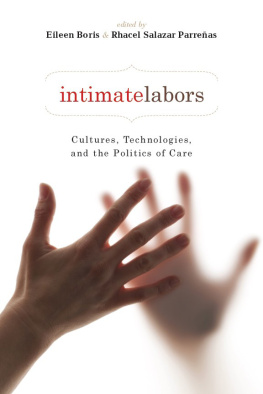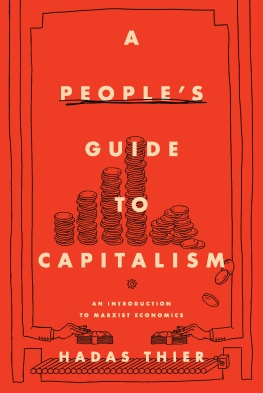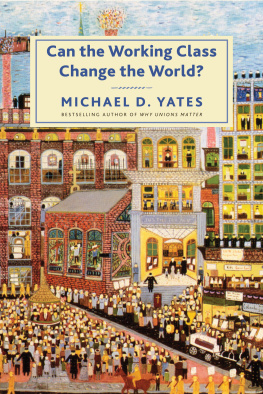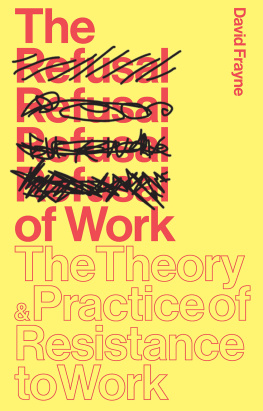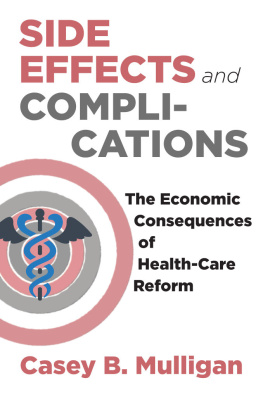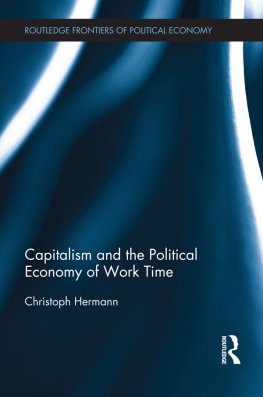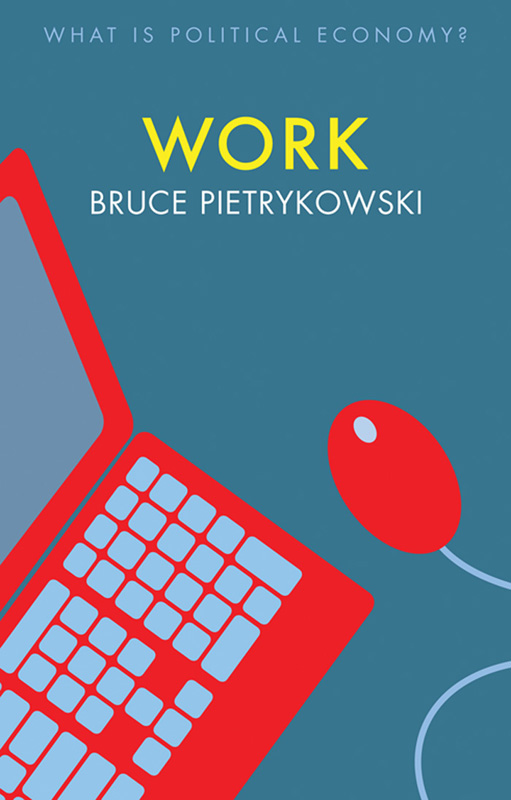Table of Contents
List of tables
- Chapter 1
- Chapter 3
List of figures
- Chapter 3
- Chapter 5
Guide
Pages
What is Political Economy? series
Bruce Pietrykowski, Work
Work
Bruce Pietrykowski
polity
Copyright Bruce Pietrykowski 2019
The right of Bruce Pietrykowski to be identified as Author of this Work has been asserted in accordance with the UK Copyright, Designs and Patents Act 1988.
First published in 2019 by Polity Press
Polity Press
65 Bridge Street
Cambridge CB2 1UR, UK
Polity Press
101 Station Landing
Suite 300
Medford, MA 02155, USA
All rights reserved. Except for the quotation of short passages for the purpose of criticism and review, no part of this publication may be reproduced, stored in a retrieval system or transmitted, in any form or by any means, electronic, mechanical, photocopying, recording or otherwise, without the prior permission of the publisher.
ISBN-13: 978-1-5095-3083-0
ISBN-13: 978-1-5095-3084-7 (pb)
A catalogue record for this book is available from the British Library.
Library of Congress Cataloging-in-Publication Data
Names: Pietrykowski, Bruce, author.
Title: Work / Bruce Pietrykowski.
Description: Medford, MA : Polity, 2019. | Series: What is political economy? | Includes bibliographical references and index.
Identifiers: LCCN 2018041115 (print) | LCCN 2018052080 (ebook) | ISBN 9781509530861 (Epub) | ISBN 9781509530830 (hardback) | ISBN 9781509530847 (paperback)
Subjects: LCSH: Work. | Equality. | Income distribution. | Economic policy. | BISAC: POLITICAL SCIENCE / Public Policy / Economic Policy.
Classification: LCC HD4904 (ebook) | LCC HD4904 .P54 2019 (print) | DDC 331dc23
LC record available at https://lccn.loc.gov/2018041115
Typeset in 10.5 on 12pt Sabon by Toppan Best-set Premedia Limited
Printed and bound in Great Britain by TJ International Limited
The publisher has used its best endeavors to ensure that the URLs for external websites referred to in this book are correct and active at the time of going to press. However, the publisher has no responsibility for the websites and can make no guarantee that a site will remain live or that the content is or will remain appropriate.
Every effort has been made to trace all copyright holders, but if any have been overlooked the publisher will be pleased to include any necessary credits in any subsequent reprint or edition.
For further information on Polity, visit our website: politybooks.com
To my father, whose working life was devoted to promoting fair labor standards, preventing child labor and prosecuting wage theft.
Introduction: The Unique Character of Work
Work: A Political Economy Perspective
What is work and who (or what) works? Work is a special topic in political economy because it is integral to the production of valuable goods and services that we all use. The products of work may result in socially useful goods and services such as satisfying, nutritious meals and better health care. On the other hand, work may produce socially destructive products like weapons of mass destruction. While we would like to live in a world with more of the former and far fewer, preferably none, of the latter, they both entail the expenditure of effort. The way in which work is organized, the characteristics of workers and the compensation received from going to work is what this book is all about. As you can imagine, economists do not agree on what is most important about work, what to focus on, what to minimize and what is the best way to explain some of the most pressing issues associated with working. So this book will help to identify important debates over the nature of work, ranging from the problems of growing income inequality and the threat of technological unemployment to the future of work in a post-capitalist world.
Another goal of this book is to explore the nature of work from the perspective of political economy. The political economy approach also referred to as heterodox economics is broadly identified by its commitment to a progressive, worker-centered vision of economic development. It draws on the traditions of Marx, Keynes, feminism and institutionalism as interpreted by contemporary economic theorists. The standpoint of heterodox political economy lies in opposition to the mainstream neoclassical, neoliberal economics found in most undergraduate textbooks and in appeals to free-market economic policies. Mainstream, neoclassical economics rests on a vision of an ideal economy characterized by individual self-interest, profit maximization and ruthless competition. By contrast, the political economy approach understands the lived experience of workers in a capitalist regime characterized by conflict, power and inequality. In addition, it is important to recognize that these forces are embedded in social norms about gender roles, for example and institutions the state, for instance that influence the distribution of workers to jobs and wages to workers.
). Another feature of political economy that sets it apart from the mainstream is its focus on the historical development of contemporary economic life. That means that we cannot figure out where we are without analyzing where we have been and what forces were at play to get us to this point. History matters because it helps us to critically evaluate the present and future of work. In addition, the political economy approach is diverse, representing an array of different lenses through which to understand the economy. As a result, in contrast to the model of perfect competition in which power is an anomaly or a sign of market imperfection, the political economy approach incorporates power, conflict, control, resistance, cooperation and solidarity into the analysis of work.
). At the other end of the spectrum, we have non-human workers currently zipping along the aisles of Amazon warehouses moving bins of merchandise. Additionally co-bots (collaborative robots) are employed in manufacturing, working next to their human counterparts. So, work, broadly conceived, includes more than human agents. Nevertheless, we will restrict our discussion to human workers, leaving open the possibility that, in the future, examination of these debates may well need to include non-human workers.
From Peasant Class to Working Class
, 14).
Serfs were essentially coerced to work for the lord. If they resisted, they could be denied access to the land, raising the threat of starvation. Some serfs did escape to the city. Others were able to buy their freedom with earnings retained from the sale of their surplus produce. So, over time, a variety of rent payments could be made: labor-rents, in-kind rent (agricultural produce) and money-rent. This is an important point to remember. The feudal system co-existed with markets, trade and proto-industrial production. In other words, there were a variety of economic activities beyond the lordserf relationship that supported the feudal economy. Later on, we will find that a plurality of economic relationships and work practices also characterize the capitalist economy.
Notice that participants in the feudal economy using rent paid in the form of labor time and agricultural products started to interact with markets and money. Marx notes that, by the fifteenth century, most English serfs had become peasants working for a wage and free laborers leasing small land parcels. Market exchange did not bring about the development of a capitalist labor market. Rather, shifts in the balance of power between lords, serfs and the emerging classes of artisans and small manufacturers posed challenges to the dominance of the old system. However, the incipient manufacturing sector could not grow without access to ready supplies of workers. Here then is an important sub-plot to the story of the rise of capitalism. For capitalism to take hold, there was a need to transform peasant farmers into industrial laborers. This is a process that has been replayed across many countries over the last 500-plus years.


